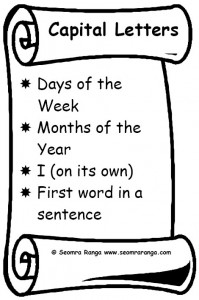This is a great article I found on Oxford blog about the new language J. K. Rowling created on the writing of Harry Potter serie of books! "Mudblood", "Animagus" are only some of them!
Check this link out and have fun!!
Blog com dicas de Inglês, Alemao e Espanhol e também com curiosidades culturais europeias. Aqui você encontra um pouquinho de tudo o que faz a paixao por conhecer novos lugares e o aprendizado de uma nova língua, uma experiência singular. Seja Bem- vindo!
quarta-feira, 21 de março de 2012
All right or Alright?
She calls them whenever she is travelling to assure them she is alright.
Similar ‘merged’ words such as altogether and already have been accepted in standard English for a very long time, so there is no logical reason to object to the one-word form alright. Nevertheless, many people dislike it and regard it as incorrect, so it’s best to avoid using alright in formal writing. Write it as two separate words instead:
She calls them whenever she is travelling to assure them she is all right.
Fonte: http://oxforddictionaries.com/
sábado, 17 de março de 2012
Irish Jokes part II
More Irish Jokes for you!!
Enjoy them!! :)
An Irish man walks into a pub. The bartender asks him, "what'll you have?" The man says, "Give me three pints of Guinness please."
So the bartender brings him three pints and the man proceeds to alternately sip one, then the other, then the third until they're gone. He then orders three more.
The bartender says, "Sir, I know you like them cold. You don't have to order three at a time. I can keep an eye on it and when you get low I'll bring you a fresh cold one."
The man says, "You don't understand. I have two brothers, one in Australia and one in the States. We made a vow to each other that every Saturday night we'd still drink together. So right now, my brothers have three Guinness Stouts too, and we're drinking together.
The bartender thought that was a wonderful tradition.
Every week the man came in and ordered three beers. Then one week he came in and ordered only two. He drank them and then ordered two more.
The bartender said to him, "I know what your tradition is, and I'd just like to say that I'm sorry that one of your brothers died."
The man said, "Oh, me brothers are fine - I just quit drinking."
The local District Judge had given the defendant a lecture on the evils of drink. But in view of the fact that this was the first time the man had been drunk and incapable, the case was dismissed on payment of ten shillings costs. "Now don't let me ever see your face again," said the Justice sternly as the defendant turned to go. "I'm afraid I can't promise that, sir," said the released man. "And why not?" Because I'm the barman at your regular pub!
So the bartender brings him three pints and the man proceeds to alternately sip one, then the other, then the third until they're gone. He then orders three more.
The bartender says, "Sir, I know you like them cold. You don't have to order three at a time. I can keep an eye on it and when you get low I'll bring you a fresh cold one."
The man says, "You don't understand. I have two brothers, one in Australia and one in the States. We made a vow to each other that every Saturday night we'd still drink together. So right now, my brothers have three Guinness Stouts too, and we're drinking together.
The bartender thought that was a wonderful tradition.
Every week the man came in and ordered three beers. Then one week he came in and ordered only two. He drank them and then ordered two more.
The bartender said to him, "I know what your tradition is, and I'd just like to say that I'm sorry that one of your brothers died."
The man said, "Oh, me brothers are fine - I just quit drinking."
The local District Judge had given the defendant a lecture on the evils of drink. But in view of the fact that this was the first time the man had been drunk and incapable, the case was dismissed on payment of ten shillings costs. "Now don't let me ever see your face again," said the Justice sternly as the defendant turned to go. "I'm afraid I can't promise that, sir," said the released man. "And why not?" Because I'm the barman at your regular pub!
quinta-feira, 15 de março de 2012
Irish Jokes
Hello Guys!!
These are some Irish jokes for you! Have fun!!
Why did God invent whiskey? So the Irish would never rule the world.
Two farmers were driving their tractor down the middle of a country road. A car comes around the corner backs hard to avoid them , skids, tumbles twice and land in a field. Jimmy say to Eamonn it's just as well we got out of that field.
Seamus do you understand French, I do if its spoken in Irish
O'Connell was staggering home with a small Paddy in his back pocket when he slipped and fell heavily. Struggling to his feet, he felt something wet running down his leg.
"Please, God," he implored, "let it be blood!"
"Please, God," he implored, "let it be blood!"
sexta-feira, 9 de março de 2012
Gerund, Infinitive or both? Part III
Verbs
followed by both infinitive and gerund:
1. begin 7. prefer
2. continue 8. forget
3. like 9. remember
4. love 10. pretend
5. try 11. hate
6. start 12. stop
13. go on
Gerund, Infinitive or both? Part II
Verbs followed by infinitive:
1. hope to do sth 19. offer to do sth
2. wish to do sth 20.
plan to do sth
3. agree to do sth
21. choose to do sth
4. disagree to do sth 22.
advice sb. to do sth
5. want to do
sth 23. would like
to do sth
6. decide to do sth
24. rush to do sth
7. learn to do sth 25. attempt to
8. fail to do sth 26.
try to do sth
9. expect to
do sth 27. volunteer to do sth
10. choose to do sth 28.
hurry to do sth
11. teach sb. to do sth 29. be allowed to do sth
12. afford to do sth 30.
hope to do sth
13. teach sb. to do sth 31. be sure to do
14. ask sb. to do sth 32.
help sb to do sth
15. get sb. to do sth 33. offer to do
sth
16. seem to do sth 34.
invite sb to do sth
17. need to do sth 35. allow sb to do sth
18. tell sb. to do sth 36. have to do sth
37.
manage to do sth
Gerund, Infinitive or both?
Hey Folks!
Let´s start a serie of post with this commom doubt... What comes next? Gerund, Infinitive or both??
Take a look!
Let´s start a serie of post with this commom doubt... What comes next? Gerund, Infinitive or both??
Take a look!
Verbs followed
by gerund:
1. avoid
doing sth
2. can't help doing sth
3. can't stand doing sth
4. delay doing sth
5. deny doing sth
6. dislike doing sth
7. enjoy doing sth
8. escape doing sth
9. fancy doing sth
10. finish doing sth
11. regret doing sth
12. imagine doing sth
13. suggest doing sth
14. keep doing sth
15. mention doing sth
16. mind doing sth
17. miss doing sth
18. permit doing sth
19. postpone doing sth
20. risk doing sth
21. reject doing sth
22. resist doing sth
23. recall doing sth
24. have fun doing
25 . consider doing
26. admit doing
27. be busy doing
28. be worth doing
29. keep doing sth
quinta-feira, 8 de março de 2012
Quando usar Letras Maiúsculas em Inglês? Capital Letters
You should always use a capital letter in the following situations:
With Days of the Week and Months
In the names of people, places, or related words
Africa, African
Buddha, Buddhism
Shakespeare, Shakespearean
At the beginning of a sentence
The museum has huge potential. It will be a great boost to the area and we are really excited about it.
In the titles of books, films, organizations, etc.
Use a capital letter in the titles of books and
other publications, films, organizations, special days, etc. In such
cases, you need a capital letter for all the main words but not for the
connecting words such as a, an, the, or, and, etc.:
Pride and Prejudice
Christmas Day
the Houses of Parliament.
In abbreviations
If you’re using the first letter of the abbreviated words, every letter should be a capital, e.g.:
BBC (British Broadcasting Corporation)
USA (United States of America)
MP (Member of Parliament)
January, March
Tuesday,Saturday
Fonte: http://oxforddictionaries.com/
Comparative x Superlative Adjectives
Let´s remember the rules of the game? :)
Check them out:
Comparative and superlative adjectives
The comparative form of an adjective is used for comparing two people or things (e.g. he is taller than me), while the superlative is used for comparing one person or thing with every other member of their group (e.g. he was the tallest boy in the class).
Adjectives make their comparative and superlative
forms in different ways, depending on the base adjective itself. Here’s a
quick-reference guide to the spelling of comparative and superlative
adjectives:
Adjectives with one syllable
In general, if the adjective has one syllable, then the letters -er or -est are added:
warm warmer warmest
quick quicker quickest
tall taller tallest
Adjectives with one syllable ending in e
If the adjective has one syllable and ends in e, just add -r or -st:
late later latest
nice nicer nicest
large larger largest
Adjectives with two syllables
Adjectives with two syllables vary. Some add -er/-est or -r/-st:
feeble feebler feeblest
Some use the words ‘more’ for the comparative and ‘most’ for the superlative:
famous more famous most famous
Many can do either, like clever:
clever cleverer/more clever cleverest/most clever
Adjectives with three syllables or more
If the adjective has three syllables or more, then the words ‘more’ and ‘most’ are used:
interesting more interesting most interesting
attractive more attractive most attractive
Adjectives that change their spelling
Some adjectives change their spelling when forming the comparative and superlative:
- Some one-syllable adjectives that end with a single consonant (e.g. big, wet, sad, fat) double this consonant before adding -er or -est:
big bigger biggest
wet wetter wettest
sad sadder saddest
- If the adjective ends in y (e.g. happy, greedy, or tidy), change the y to an i and add -er or -est:
happy happier happiest
greedy greedier greediest
tidy tidier tidiest
- Some common adjectives have irregular comparative and superlative forms that you just have to learn:
bad worse worst
good better best
little (of a quantity) less least
much more most
Assinar:
Postagens (Atom)









